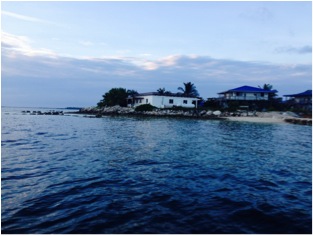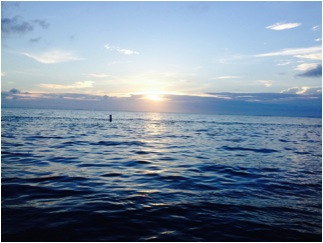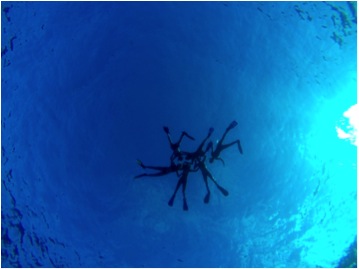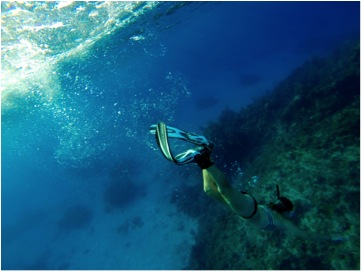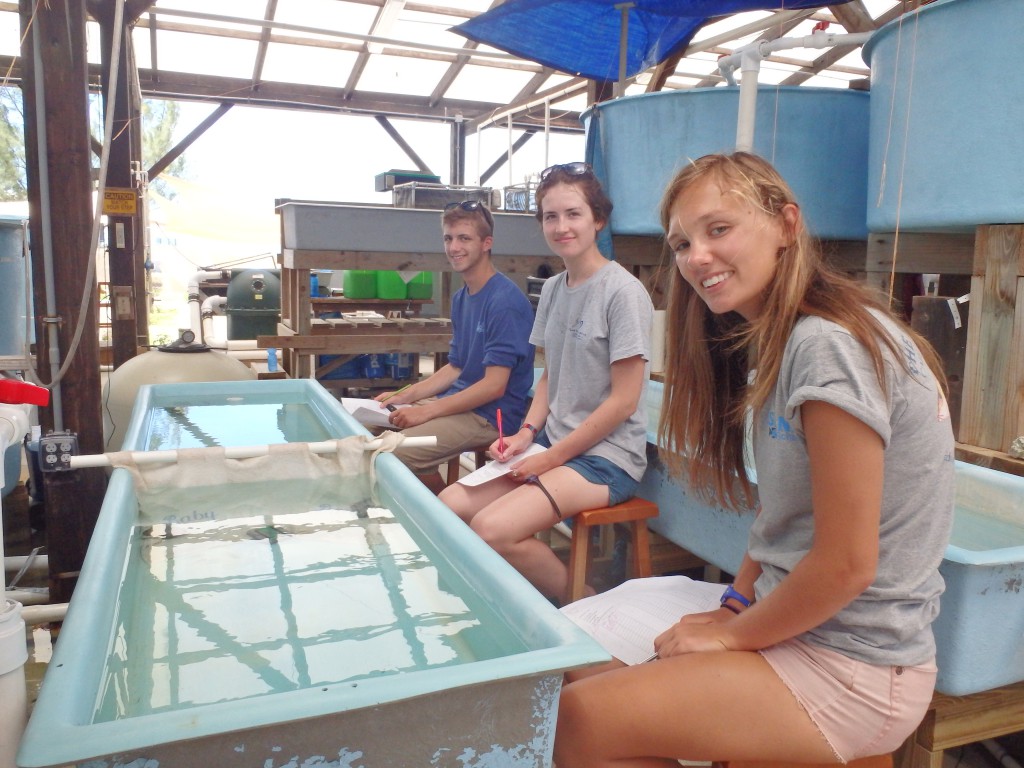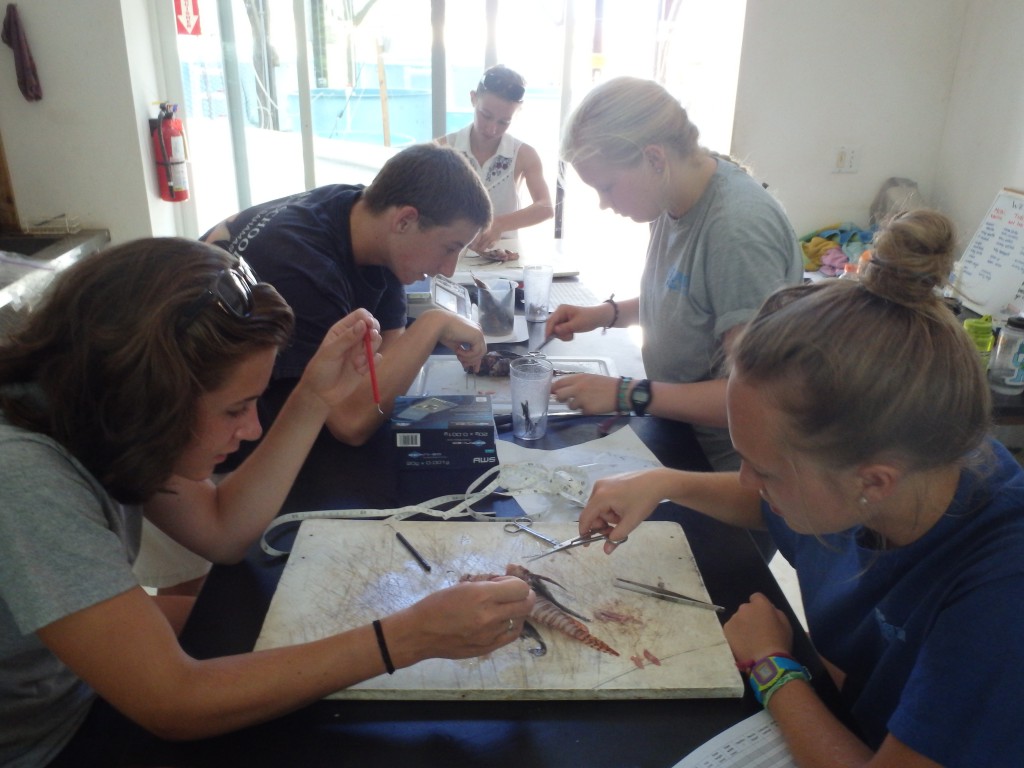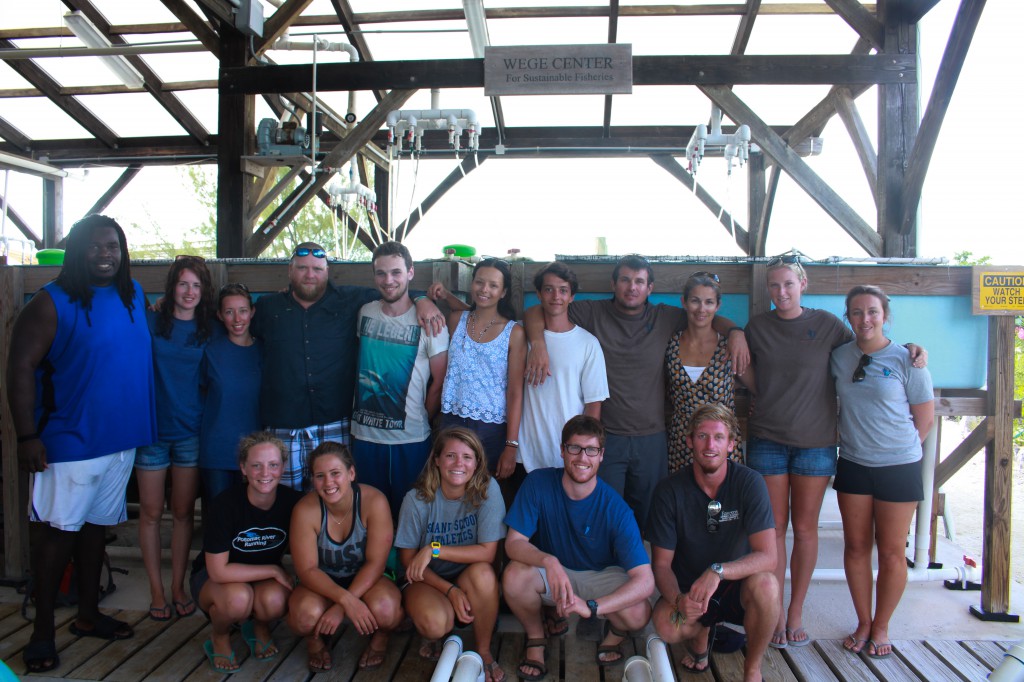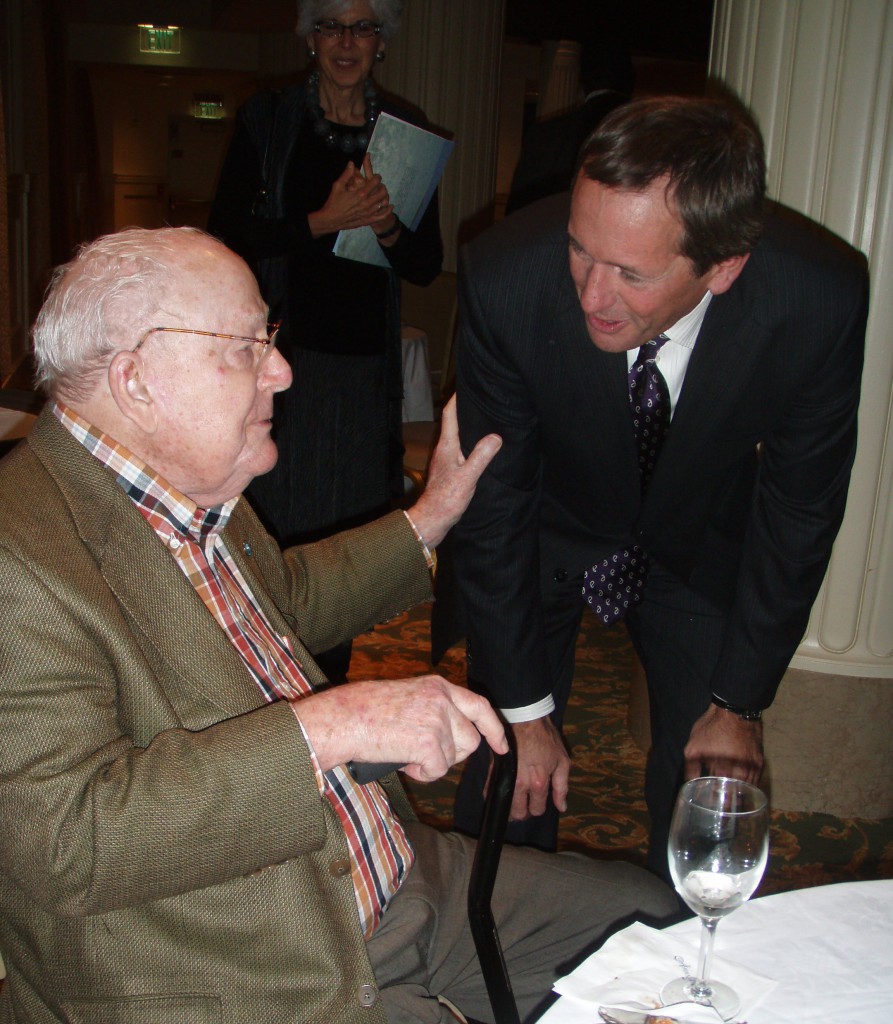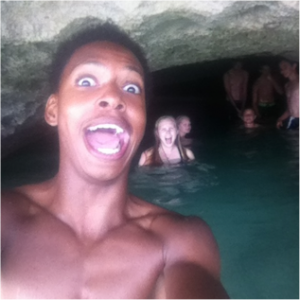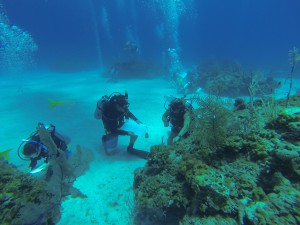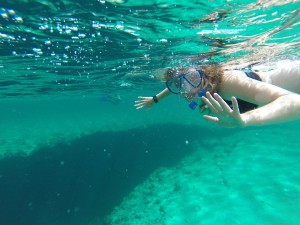Waking to another gorgeous Bahamian sunrise, we gathered at the flagpole to prepare for… The pole swim. After tightening our goggles and stretching to loosen our muscles, we dove off the dock into the turquoise seas. The mile swim deemed quite challenging for many swimmers as we struggled to freestyle against the current. After everyone reached the docks, we were all rewarded with muscle soreness, salty skin, and a delicious breakfast. The down island trip was greatly missed at the swim.
In the marine ecology group, we designed a “video game” called Coral of Duty: Polyp Revenge. We discovered how Brad Polyp and Algaelina Jolie worked together to save the ocean reefs with their children, zoo zoos and nee nees. We also went on an extravagant dive to get a close look at the varieties of Bahamian coral on Tunnel Rock. We were all amazed at all of our unique patch reefs with abundance of cool biodiversity.
After reflecting on our time underwater, we were able to realize that we must protect the reefs, especially the corals that offer so much to the underwater ecosystem. We completed a long night of homework and quickly fell asleep after a tiring yet exciting day.
Your Caciques,
Will and Margo

